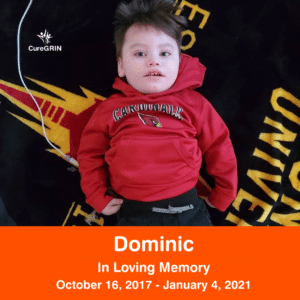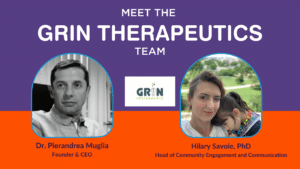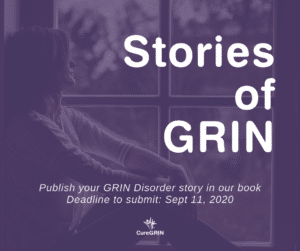Dominics Legacy
Share this story.

The Jimenez family made a selfless decision to donate their son’s brain to research within hours of his death early this year. Three-year-old Dominic (Dom) had a variant in his GRIN1 gene. From the beginning, Dom struggled with seizures from an unknown cause and respiratory issues. His parents, Samantha and Jordan Jimenez, tried everything to help him thrive. Dom’s parents share, “A team of specialists ordered countless tests, procedures and medications that gave us hope we would find an answer and could take our son home. However, with each failed medication and normal test result, we were discharged home without the answer we were desperate for.”
But at the end of an already challenging 2020, Dom contracted another respiratory illness. He struggled to breathe for several days. Eventually, complications led his medical team and parents to place Dom on a ventilator. Although they remained hopeful for a recovery, after some time, it was clear Dom was slipping away. In early January, Dom took his last breath.
The Jimenez family had bravely discussed end-of-life wishes for their precious child. In their darkest hour, they made the decision to donate Dom’s organs to give others hope for life. They also understood that donating Dom’s brain could make a huge impact on GRIN Research. This could provide researchers a better understanding of how GRIN Disorder affects the human brain and insight into possible treatments and cures. Until now, research was limited to animal models and human cells.
Dom’s parents, wanting his short life to have an impact on other GRIN patients, made an incredible sacrifice of love, to donate his brain tissue for GRIN Research. Samantha attributes their ability to act quickly to preserve Dom’s brain to having made their family decision to donate shortly prior to his passing. She expresses gratitude to Dom’s dad, Jordan, in his willingness to make the precious gift of donation for research.
Dom’s brain was donated to Autism Brainnet, part of Simons Foundation Autism Research Initiative. These tissues are stored at a facility in California where researchers can request samples for research studies. CureGRIN is working with Simons to develop a Memorandum of Understanding to facilitate future donations and guide research so it meets the needs of GRIN patients and their families.
University of Toronto will be among the first to use Dom’s brain tissue in further studies that aim to better understand how GRIN Disorder affects the human brain.
Parents often ask, “Does GRIN Disorder shorten life expectancy?” Although we do not know that GRIN Disorder itself is fatal, our GRIN Community has been rocked by several deaths in the past several years. These tragic loses have been attributed to factors or complications caused by GRIN —respiratory complications, as in Dominic’s case, as well as choking or suffocation due to hypotonia (low tone) or seizure-related deaths. CureGRIN is working with researchers to better understand mortality among children with GRIN Disorder.
The team at CureGRIN is humbled and incredibly grateful for Dominic’s parents’ selfless gift. Dominic will live on through science and help bring treatments and cures for others living with GRIN Disorder.
Please help us express appreciation and send love and support to Dominic’s family as they focus on healing. We are forever grateful and will honor Dominic’s memory every day as we work tirelessly to find a cure for GRIN Disorder.
Read more Posts

Introducing GRIN Therapeutics
We recently announced plans to initiate the first clinical study on Radiprodil. Meet the GRIN Therapeutics team here.

Publish your GRIN Story in our book
CureGRIN is publishing a book of stories about GRIN Disorder and we’d love to include yours!
